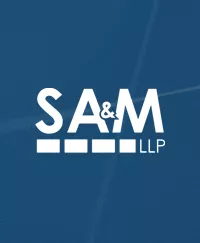- In addition to entities currently eligible for EIDL (SBA disaster loans), the CARES Act expands this coverage to:
- Businesses with 500 or fewer employees;
- Sole proprietorships, with or without employees, and independent contractors;
- Cooperatives with 500 or fewer employees;
- Employee stock ownership plans (“ESOPs”) with 500 or fewer employees; and
- Tribal small businesses.
- The Covered Period for purposes of this section is January 31, 2020 to December 31, 2020.
- During this Covered Period, the Administration will waive the following aspects of the EIDL program:
- Rules related to personal guarantees on advances and loans of $200,000 or less for all applicants;
- The “1 year in business prior to the disaster” requirement (except the business must have been in operation on January 31, 2020); and
- The requirement that an applicant be unable to find credit elsewhere.
- The Administration is also permitted to approve applicants for EIDL based solely on the applicant’s credit score (and not a tax return) and use any alternative appropriate method to determine an applicant’s ability to repay.
- During this Covered Period, EIDL applicants in response to COVID-19 may also request an emergency advance from the Administration of up to $10,000, which does not have to be repaid, even if the loan application is later denied.
- The Administration is charged with verifying an applicant’s eligibility for this by accepting a “self-certification” from the applicant under penalty of perjury.
- Advances are to be awarded within three days of an application.
- These funds must be used for the following purposes:
- Providing sick leave to employees unable to work due to direct effect of COVID-19;
- Maintaining payroll to retain employees during business disruptions or substantial slowdowns;
- Meeting increased supply chain costs;
- Making rent or mortgage payments; and
- Repaying debt obligations that cannot be paid due to lost revenue.
- If an emergency grant recipient transfers into, or is approved for, a Covered Loan, the advance amount will be reduced from any payroll cost forgiveness amounts.
Subsidies for Certain Loan Payments:
- The CARES Act encourages lenders to defer payments on loans (1) guaranteed by the Administration under (a) the SBA or (b) Title V of the Small Business Investment Act (to State and Local Development Companies), or (2) made by an intermediary to a small business using loans or grants received under the SBA’s Microloan Program.
- The “Administration should encourage lenders to provide payment deferments, when appropriate, and to extend the maturity of [the above-described loans], so as to avoid balloon payments or any requirement for increases in debt payments resulting from deferments provided by lenders” during the COVID-19-declared emergency.
- Additionally, for the above-described loans, the Administration must pay the principal, interest, and any associated fees owed in a regular servicing status:
- For loans made before the CARES Act’s enactment and not on deferment, for the six-month period beginning with the next due payment;
- For loans made before the CARES Act’s enactment that are on deferment, for the six-month period beginning with the next due payment after the deferment period;
- For loans made within six months of the CARES Act’s enactment, for six months after the first payment is due.
For more information or questions regarding SBA EIDL Program and other assistance for your business, email .
